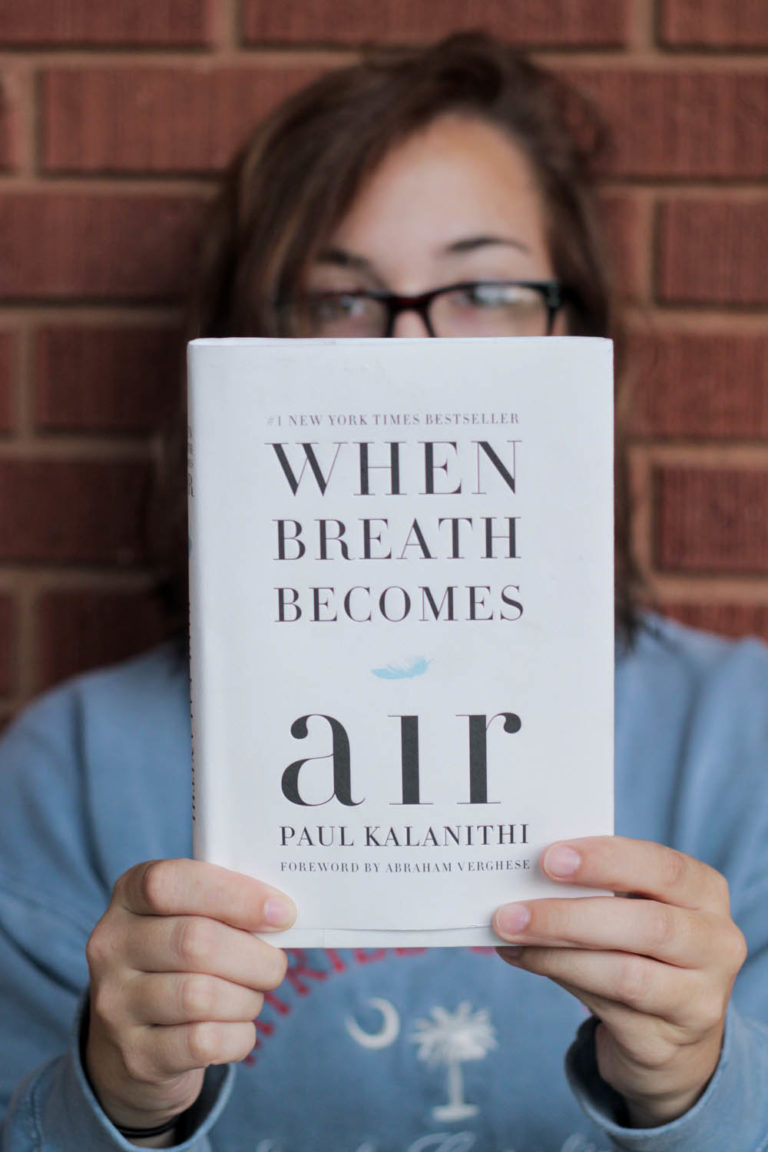By Rachel Terry, Opinion Editor
Transitioning into college life as a freshman can be tough. Entering into the unknown is always a little unnerving. Some schools offer classes for incoming freshmen that provide strategies for a smooth transition and offer advice for dealing with homesickness.
The Asbury equivalent is a course designed specifically for freshmen to read and discuss a book that raises questions about heavy topics such a life, death and finding purpose. The course, Engaging Liberal Arts, is dedicated to “promoting critical and conceptual thinking about questions arising about human life, culture, experience, and Christian faith.”
This year’s book selection, “When Breath Becomes Air,” has sparked a debate, calling into question the benefits of discussing such heavy issues during such a fragile time in students’ lives.
“They’ve just said goodbye to their parents, homes and friends,” sophomore TAG leader Jonathan Grosz said. “They’re trying to acclimate to a new environment and find new friends. That’s not a good time to smack them in the face with a reminder of their own mortality and how fragile life is.”
The book, an autobiography written by neurosurgeon Paul Kalanithi, documents the final years of his life after he is diagnosed with stage IV lung cancer. Kalanithi wrestles with the irony of shifting from promising surgeon to patient as his health declines. is shift leads him to ask the question “What makes for a meaningful life?”
“It’s not that we wanted to begin the year on some morbid note or anything like that,” Daniel Strait, chair of the liberal arts council, said, “But what we were really hoping was that students would discover just how life affirming this book actually is. It’s life affirming in the sense that sometimes in the face of suffering, in seasons of trial and difficulty, sometimes we ask the best questions.”
Grosz believes that the lack of a hopeful gospel message in the selected book does not match the mission of the university. He said, “Requiring all incoming freshmen to read a book about the meaning of life that really doesn’t even touch on the gospel is completely backwards.”
Even though Asbury is a Christian liberal arts university, it is important that students learn to think critically and apply their faith in contexts where the gospel is not explicitly mentioned.
Instead of relying on the book to explain the gospel in a familiar way, Strait wants to see students combine their conversations, prayers, theological understandings and biblical literacy to formulate a Christian response to the text.
“Sometimes we can learn an awful lot by having to develop our own capacity for putting forth a Christian response,” he said.
Regardless of Kalanithi’s failure to explicitly draw on the gospel, his narrative is powerful enough to encourage readers to address the heart- wrenching questions that surface in seasons of suffering. Only through considering a response to these questions can a person confidently decide what constitutes a life full of purpose and meaning.
“A lot of people can get caught up in wanting to rush through everything and move on,” freshman Molly Pegram said. “This book makes you realize that we can’t rush through life and take the fast route. What makes a meaningful life is just to live in the moment and enjoy the people around you.”




